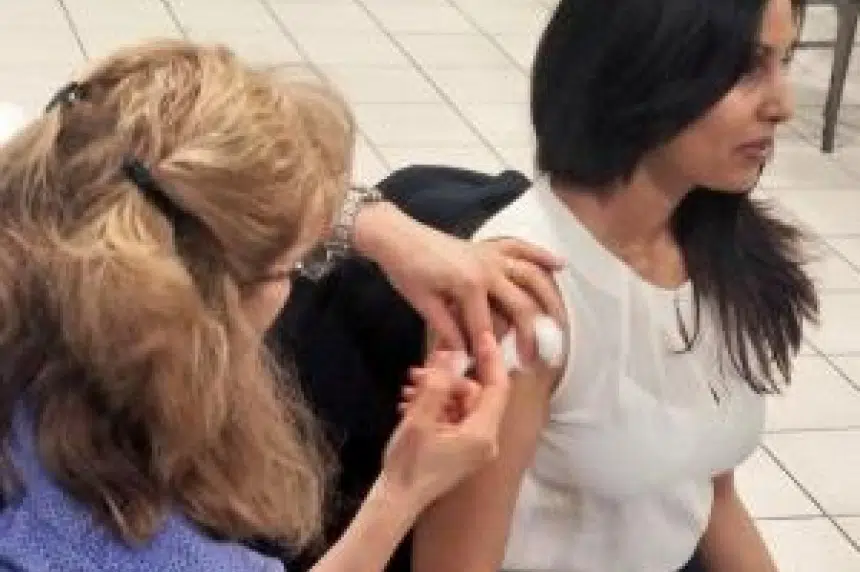A new national nursing licensing exam has fewer students passing, but Saskatchewan institutions aren’t worried yet.
From January to the end of June, 195 Saskatchewan nursing students – less than 30 per cent of graduates – took the new National Council Licensure Examination (NCLEX). Of that group, 118 – 60.5 per cent – passed, down nearly 10 per cent from last year.
While the Canadian Association of Schools of Nursing (CASN) said the preliminary results “validate concerns” of nurses and schools about NCLEX, Saskatchewan schools and associations are singing a less alarmist tone.
“We’re making judgment or assumptions from 4,701 students in Canada that have written (the NCLEX exam), and we really won’t have a good handle on the total experience until the end of the year,” University of Saskatchewan College of Nursing dean Lorna Butler said.
Saskatchewan had the second-lowest passing rate in the country behind New Brunswick.
Nationally, 70.6 per cent of 4,701 students who took the test passed, also more than 10 percentage points below the pass rate “for the last number of years” according to CASN, and below the 78.3 per cent American pass-rate.
Butler said the online structure was new for students and teachers. She pointed to 2011, when the Canadian exams were updated. She said the U of S experiences a similar 10 per cent dip in license pass-rates, but the number increased each quarter thereafter.
“It’s a process. It takes time to learn how to use the new approach,” she said. “It’s part of the learning curve and we’ll learn as a country.”
The electronic NCLEX rolled out in January to every province and territory except for Quebec and Yukon, after schools were made aware of the upcoming change in 2012. Students must pass the exam to be licensed in the province they took it.
Before, students could only take the Canadian Nurses Association paper-based exam three times a year. The NCLEX test, which is run by the American National Council of State Boards of Nursing, can be taken throughout the year.
Butler said the U of S had a 79 per cent pass rate, which was 10 per cent lower than under the previous exam structure.
The Saskatchewan Collaborative Bachelor of Science and Nursing (SCBSN) program between Saskatchewan Polytechnic and the University of Regina (U of R) had a 58 per cent pass rate, down from 80 percent.
Polytechnic provost and vice president academic Dr. Ann Neufeld said because the exam comes from the United States, some of the language may have contributed to a lower pass rate. She said two of their faculty are working with on the exam to cater it to the Canadian health care system.
Both the U of S and Polytechnic/U of R program will review their exam preparation courses ahead of future exams.
Neufeld said their students who failed and retook the exam had a 75 per cent success rate the second time around. The Saskatchewan Registered Nurses Association (SRNA) was supportive of the new exam structure from day one and continued to show its support.
A SRNA statement said the organization remains confident the exam is a “fair and reliable tool.”
“We recognize (the January to June results were) very preliminary but we are working very closely with the academic programs,” said SRNA president Shirley McKay.
For now, Saskatchewan nursing gradates who fail the licensing exam can still work under supervision. They’ll have two more chances to write the exam whenever they feel confident.







